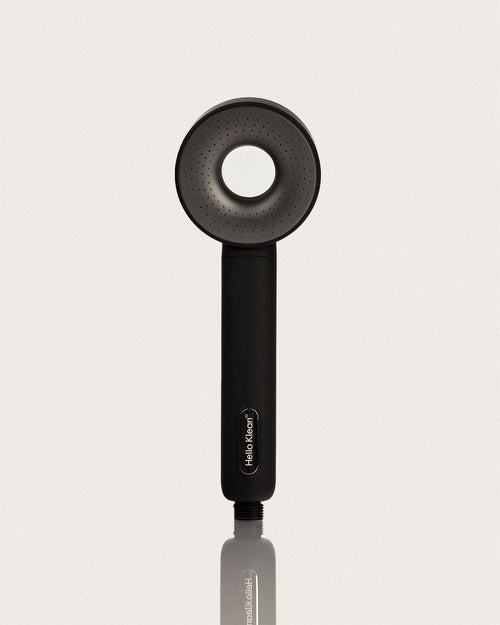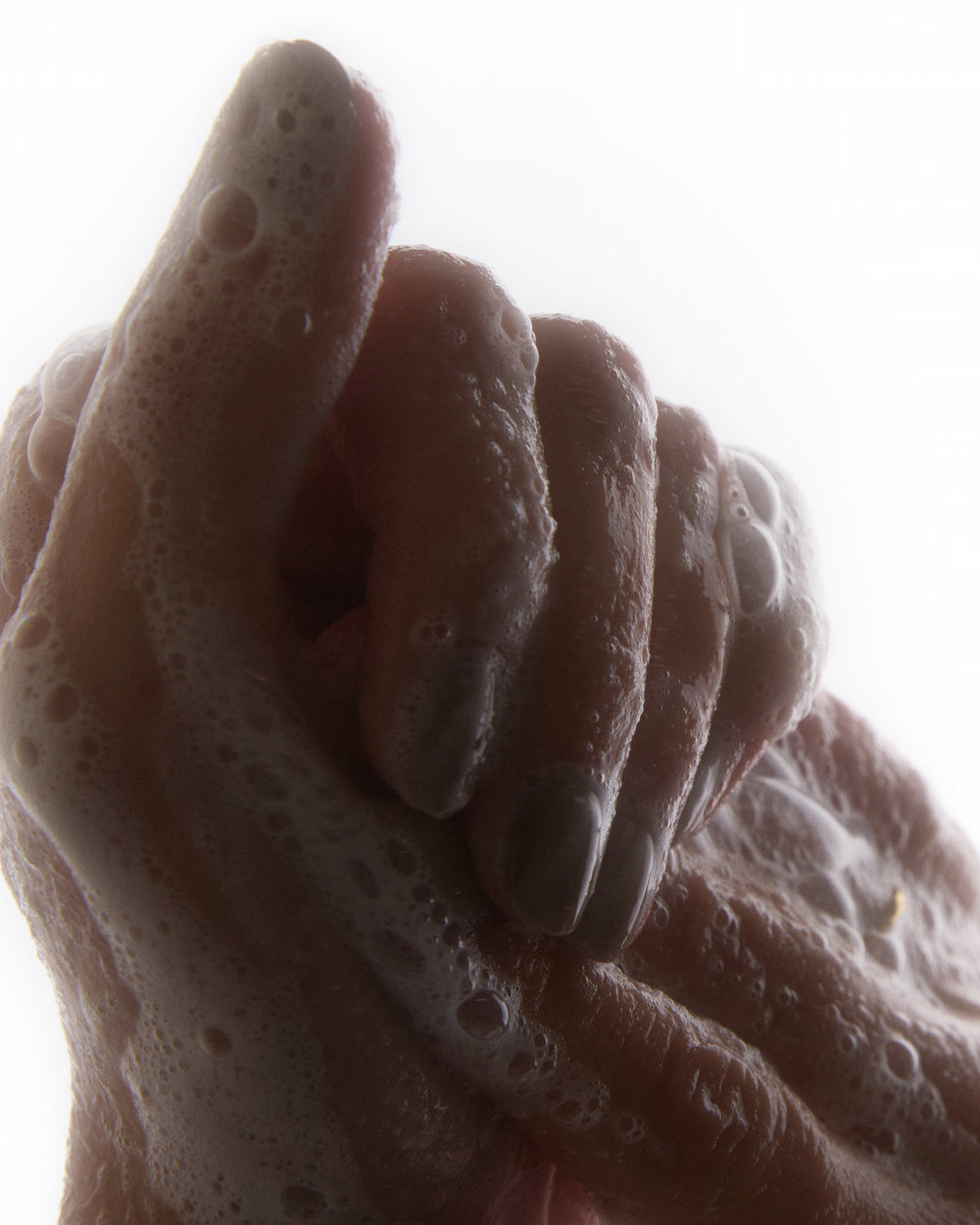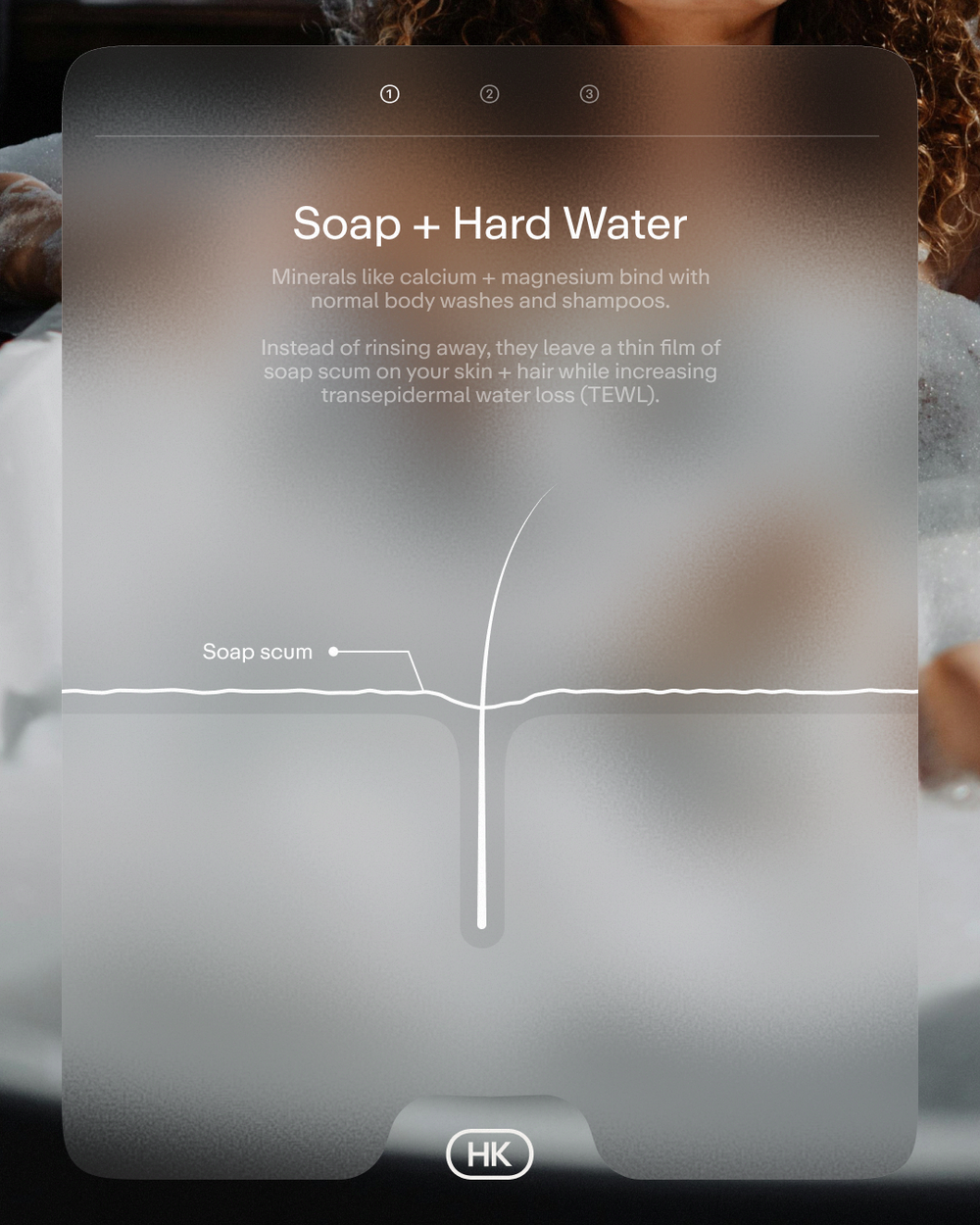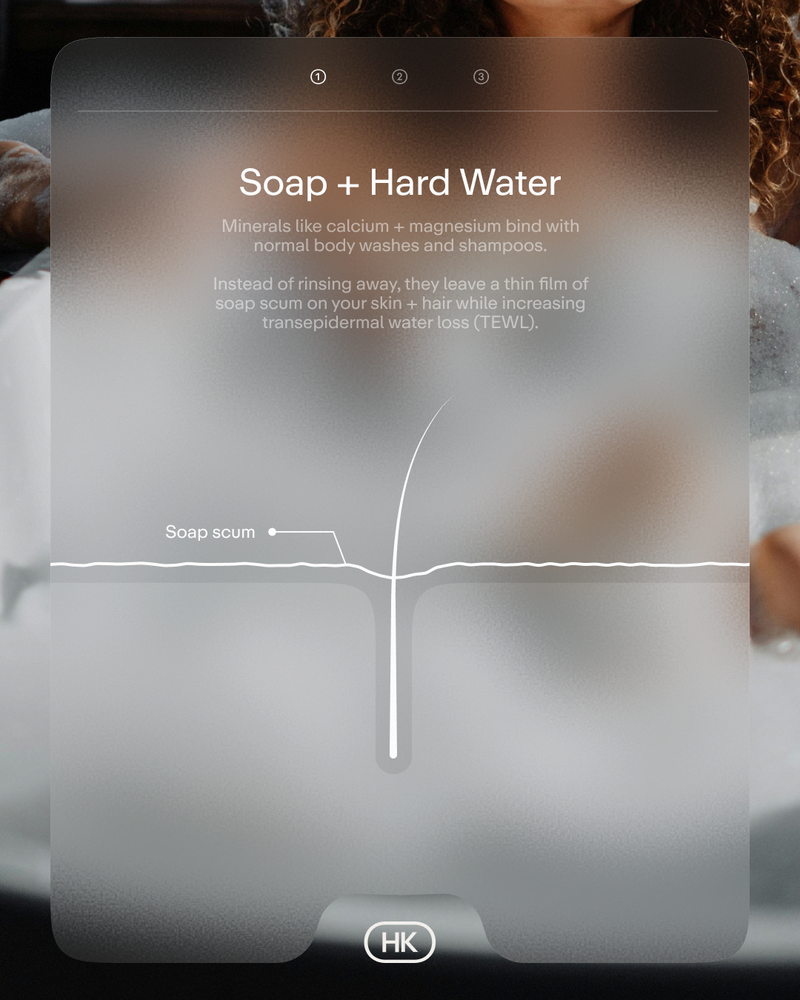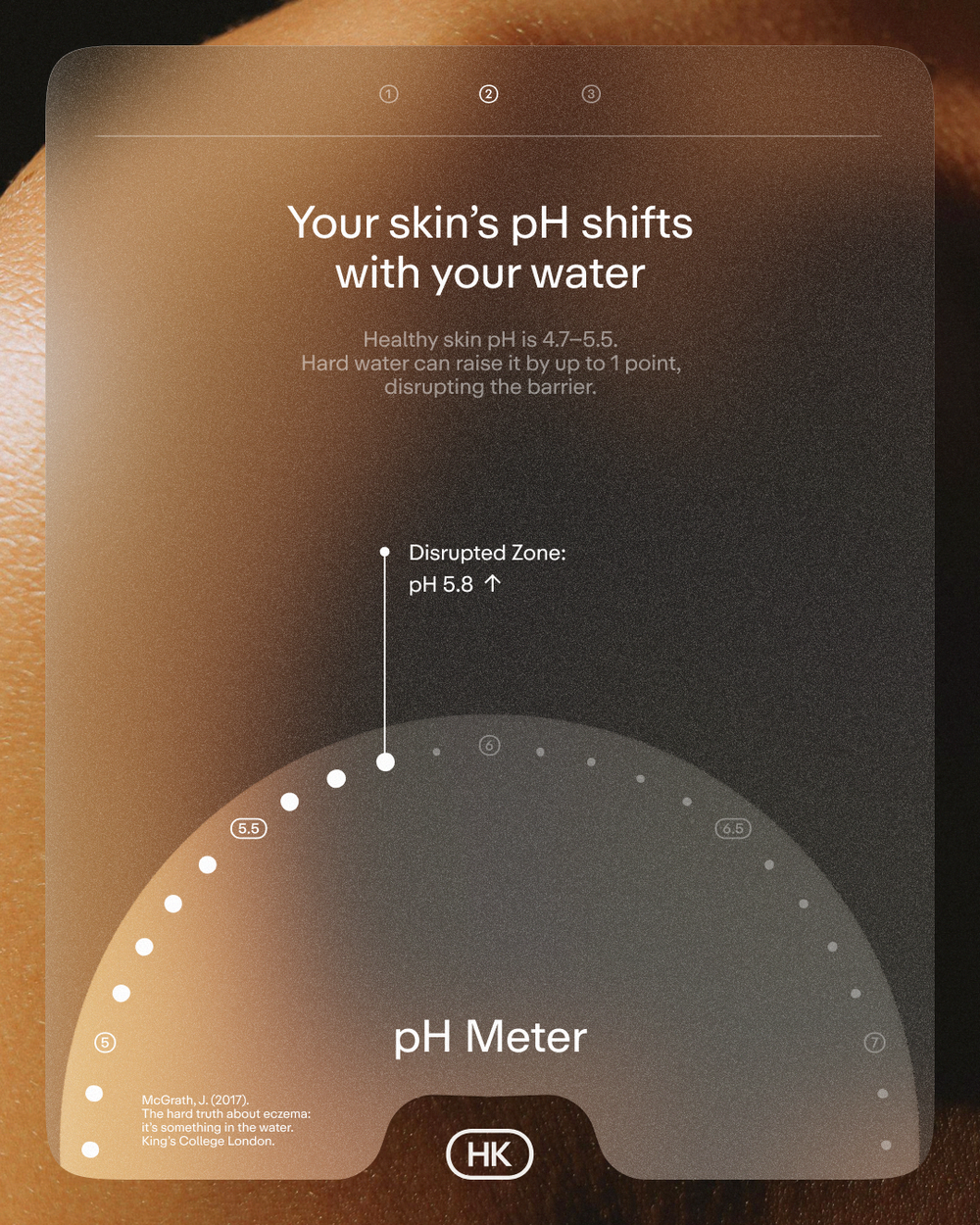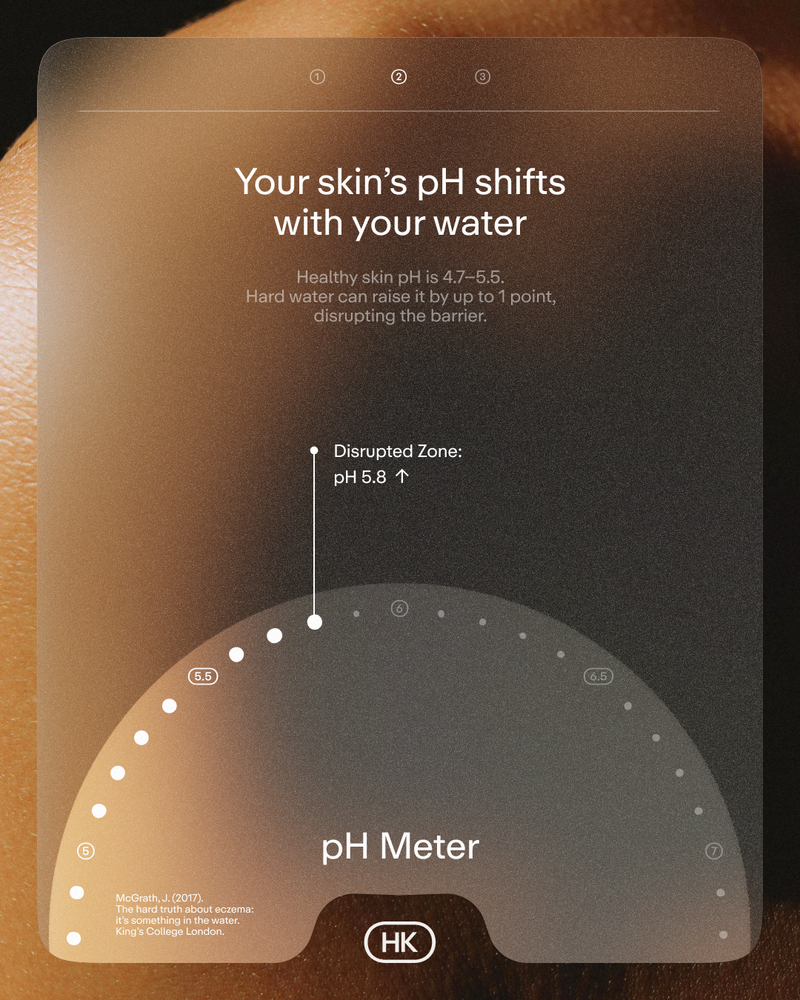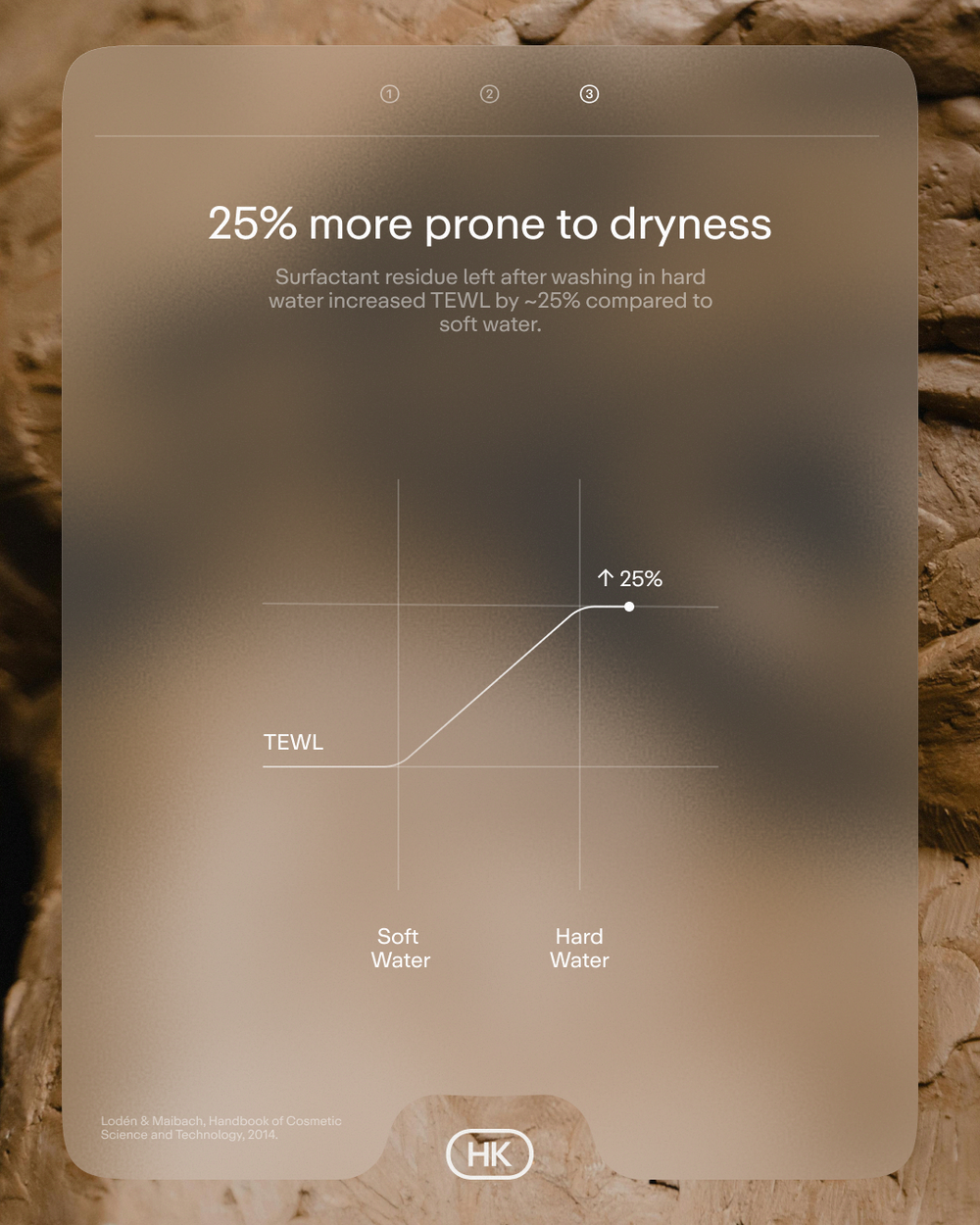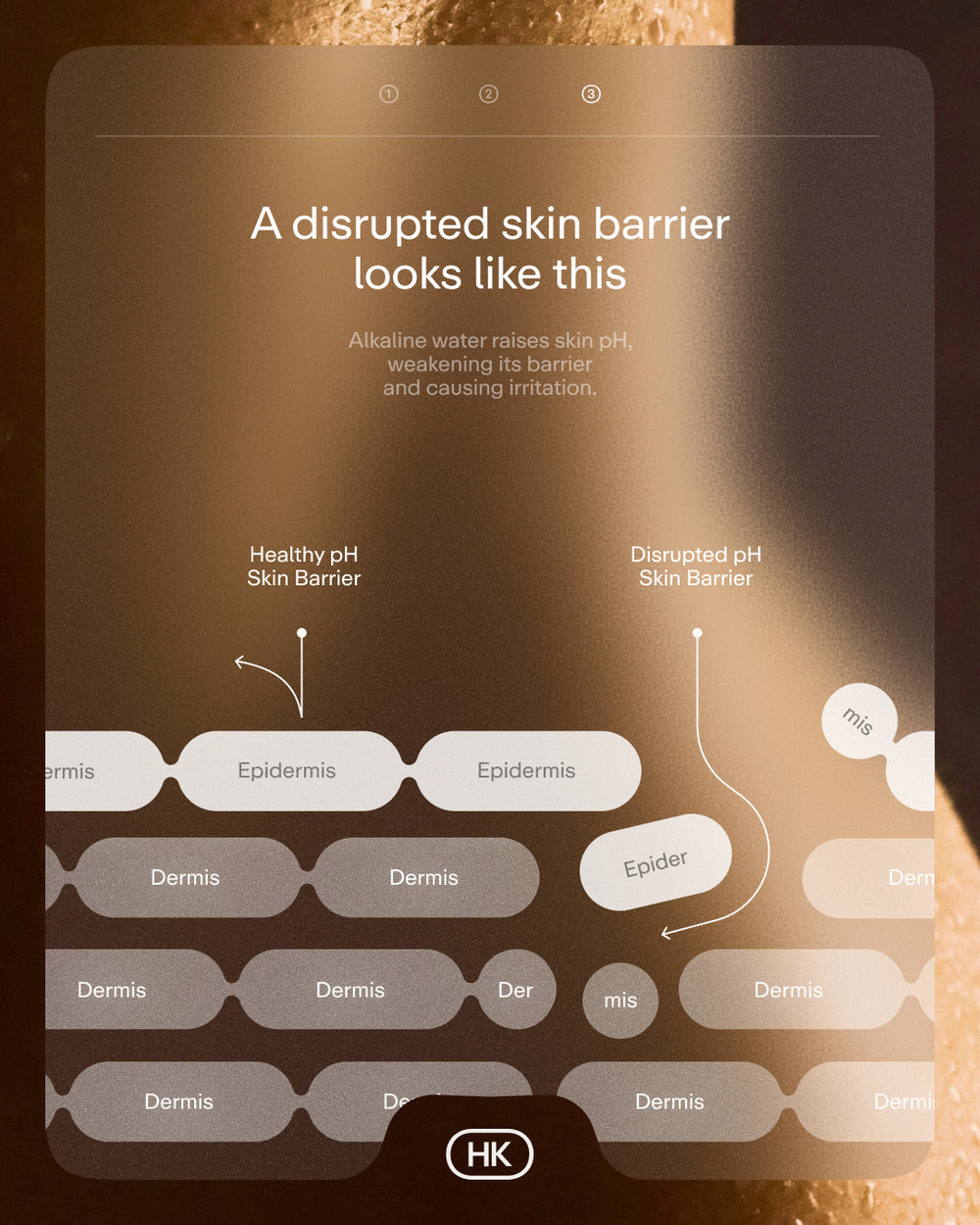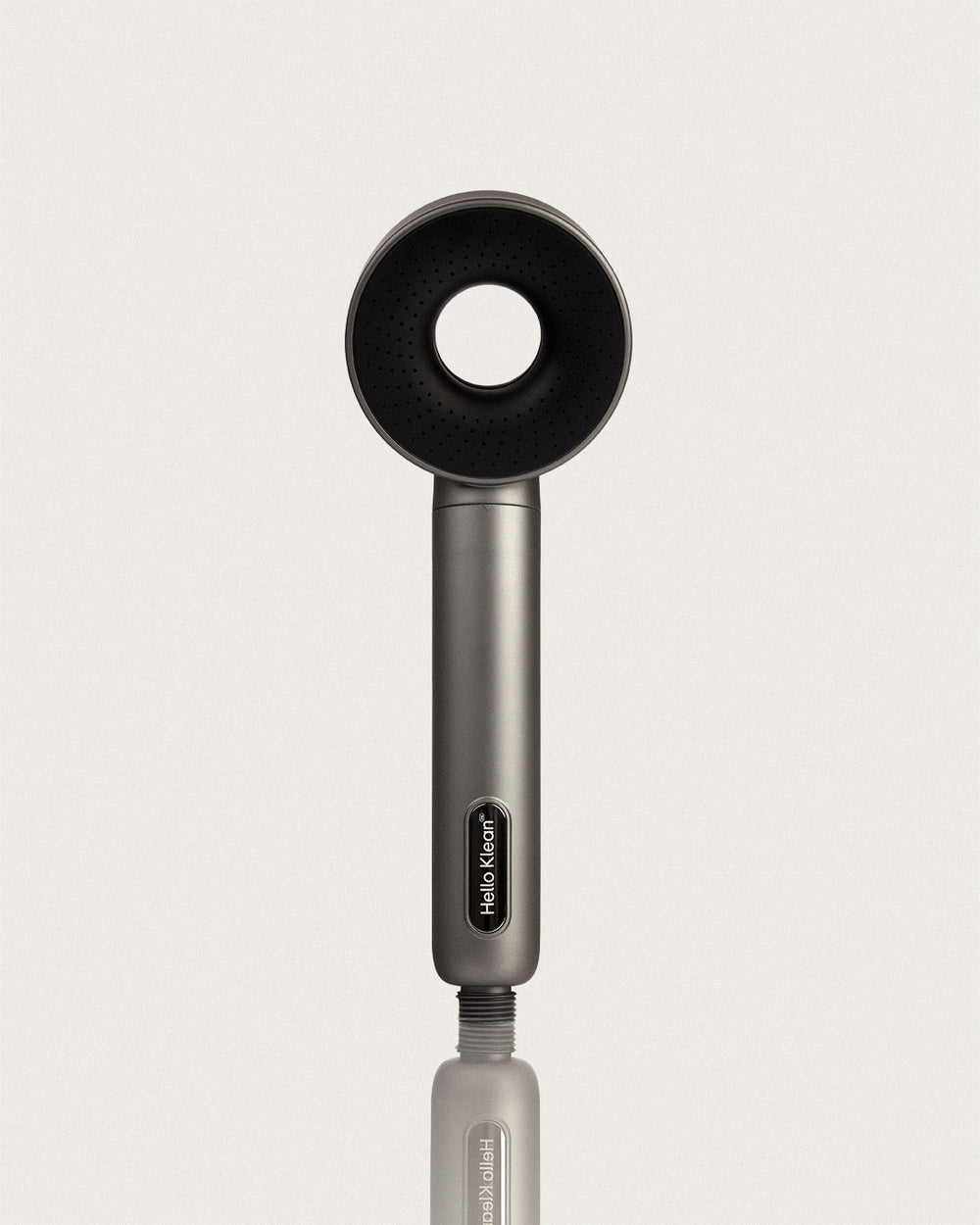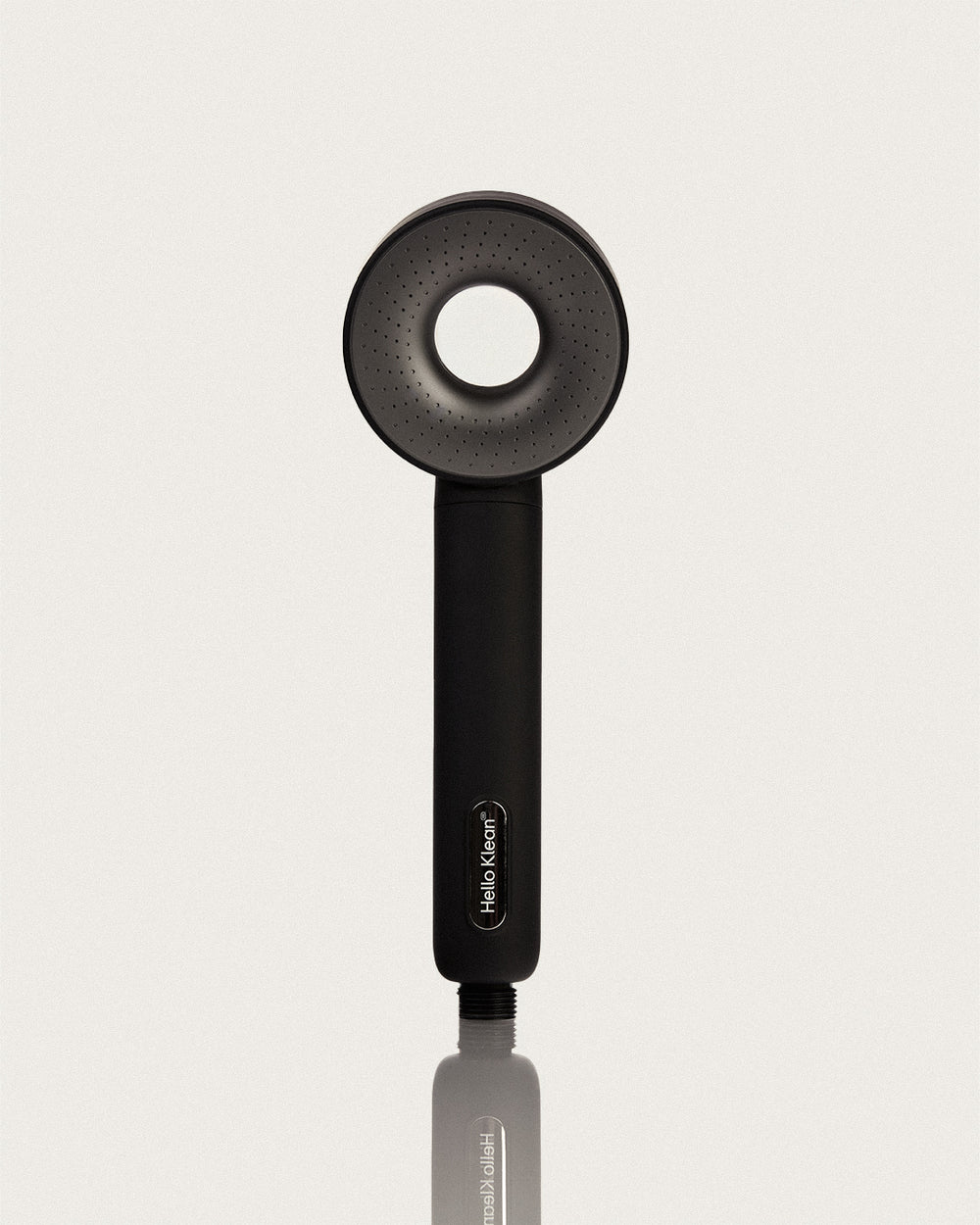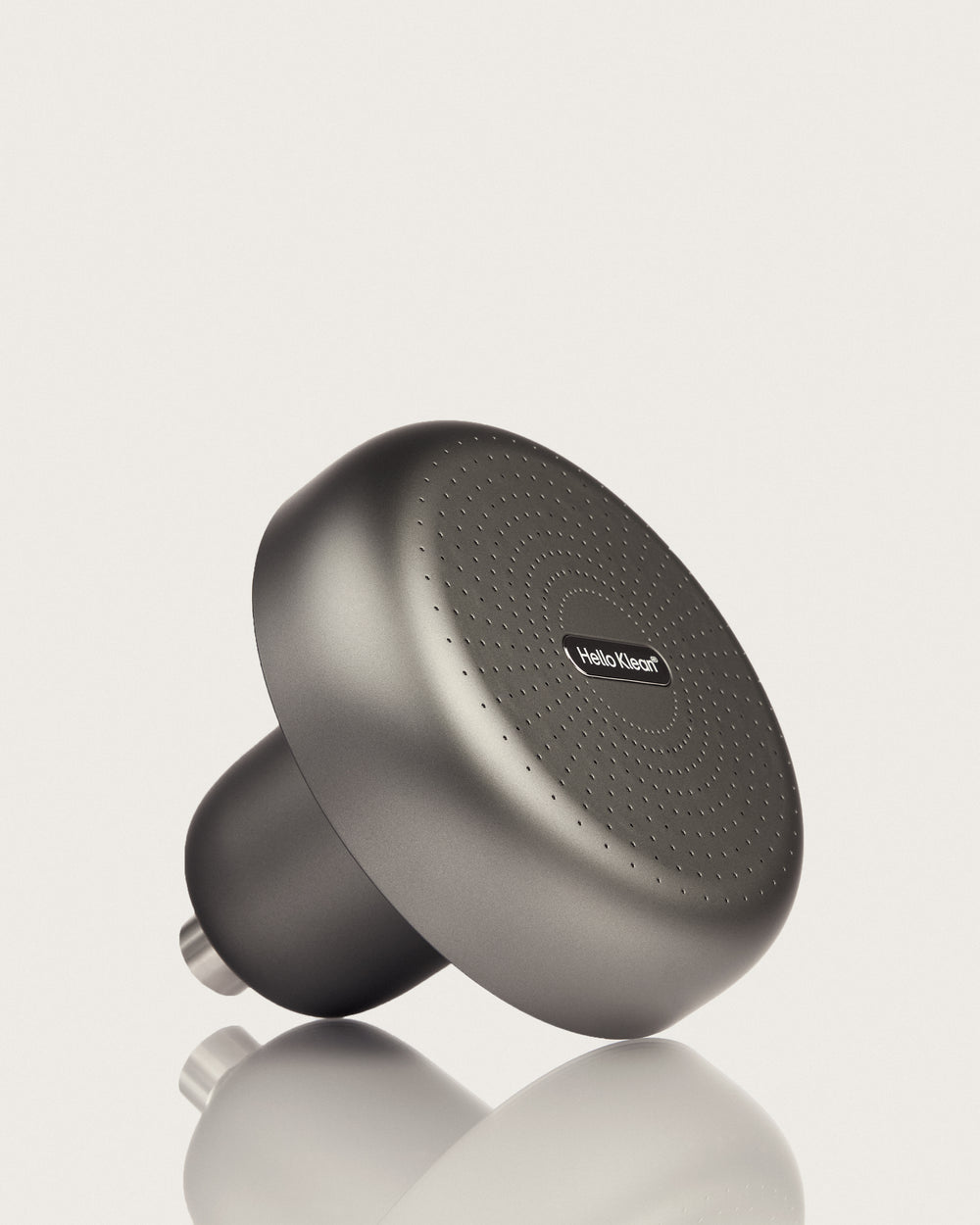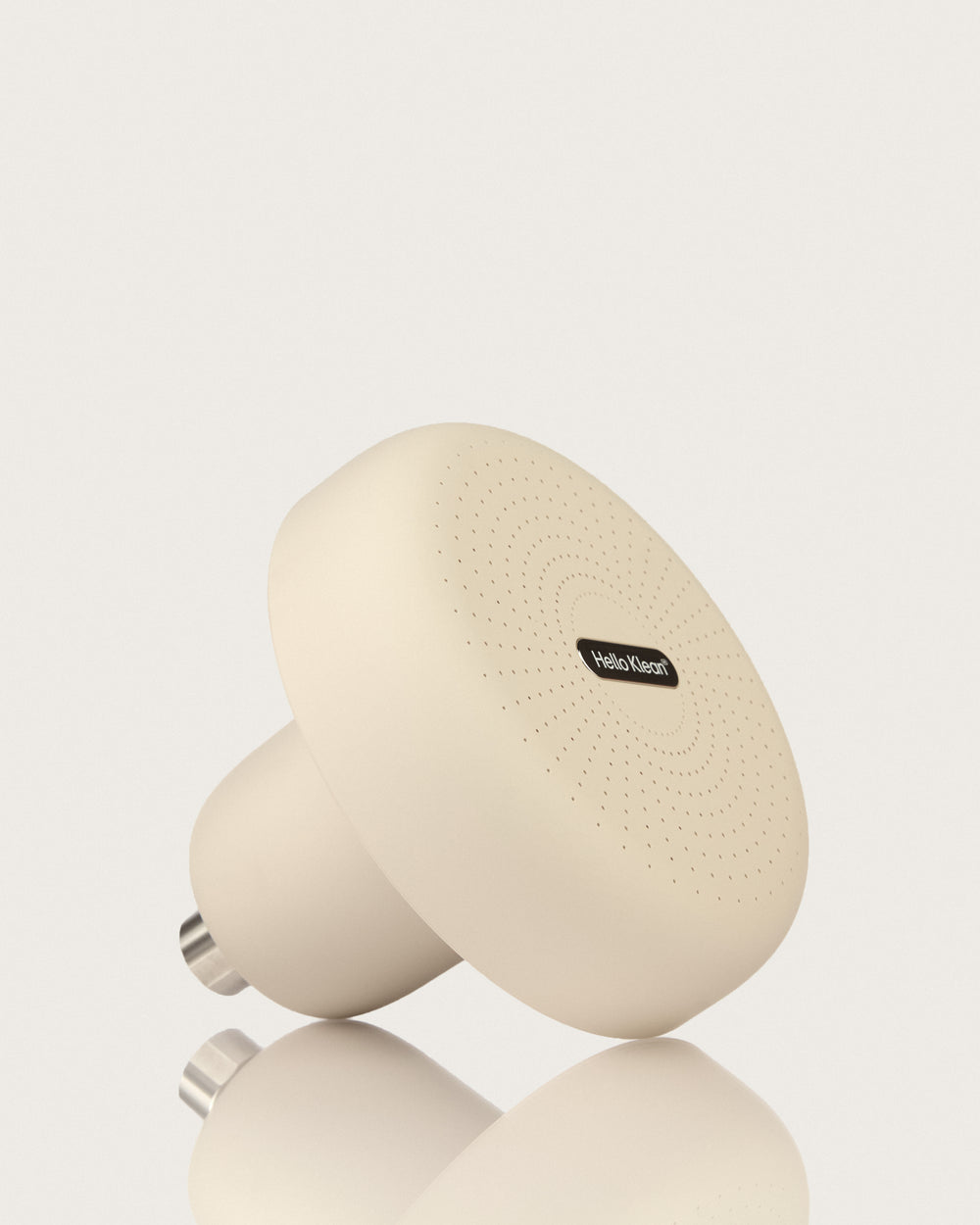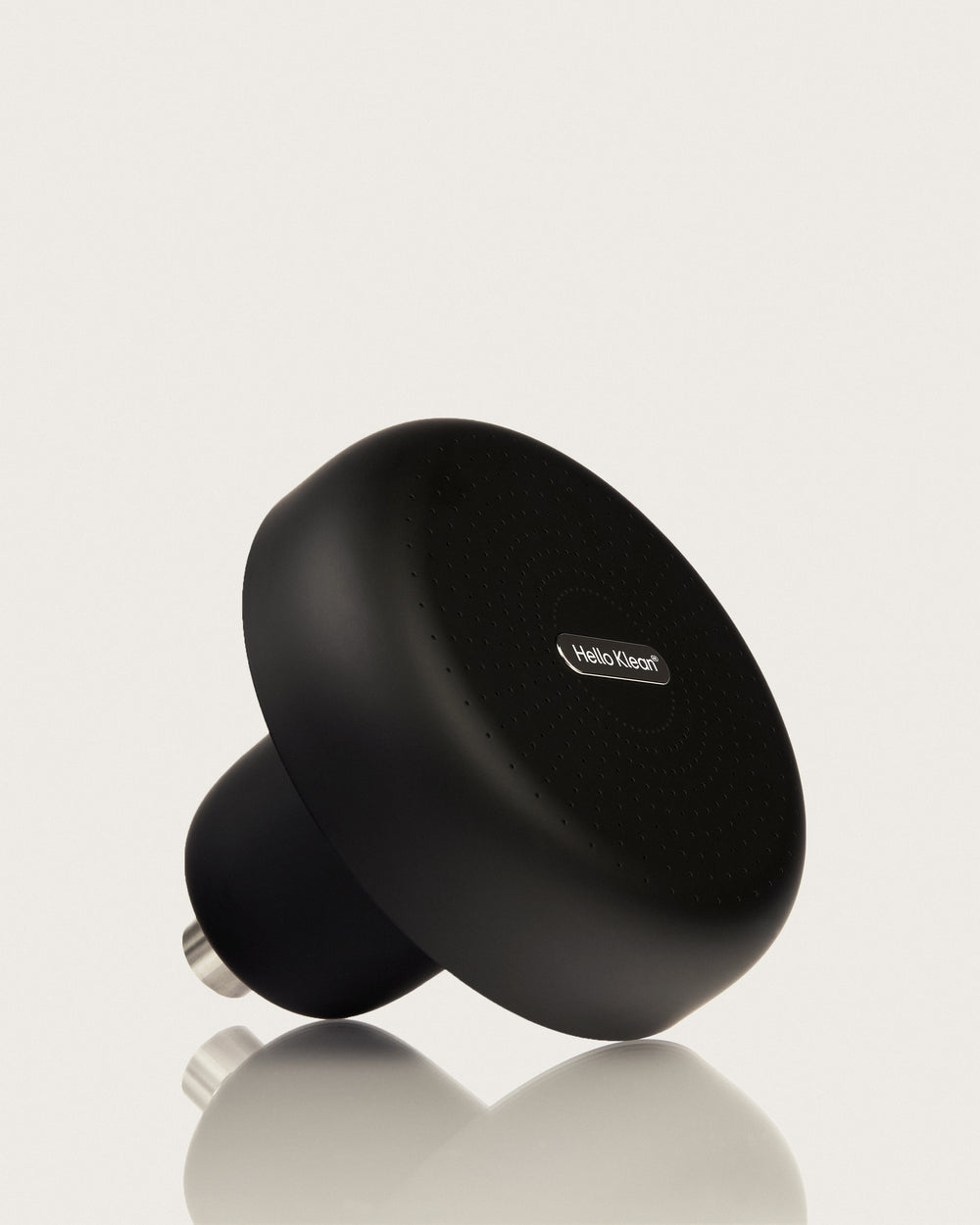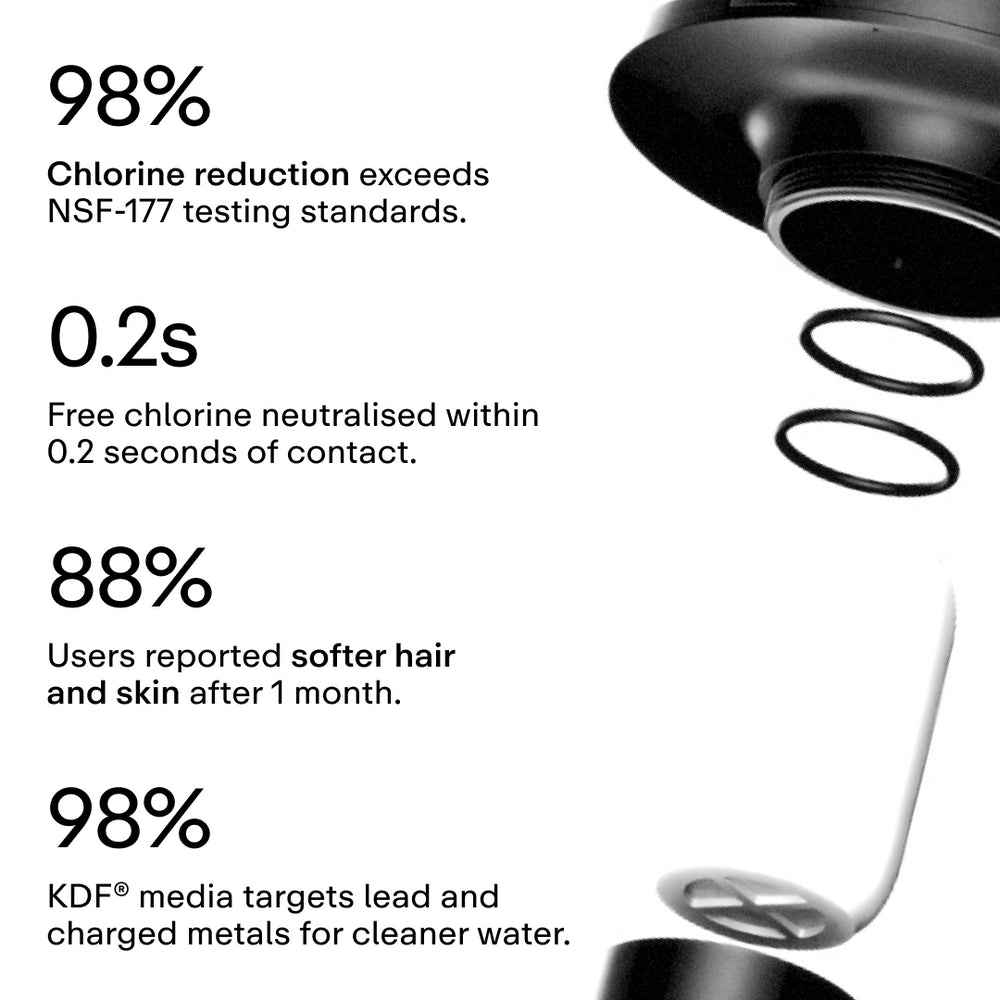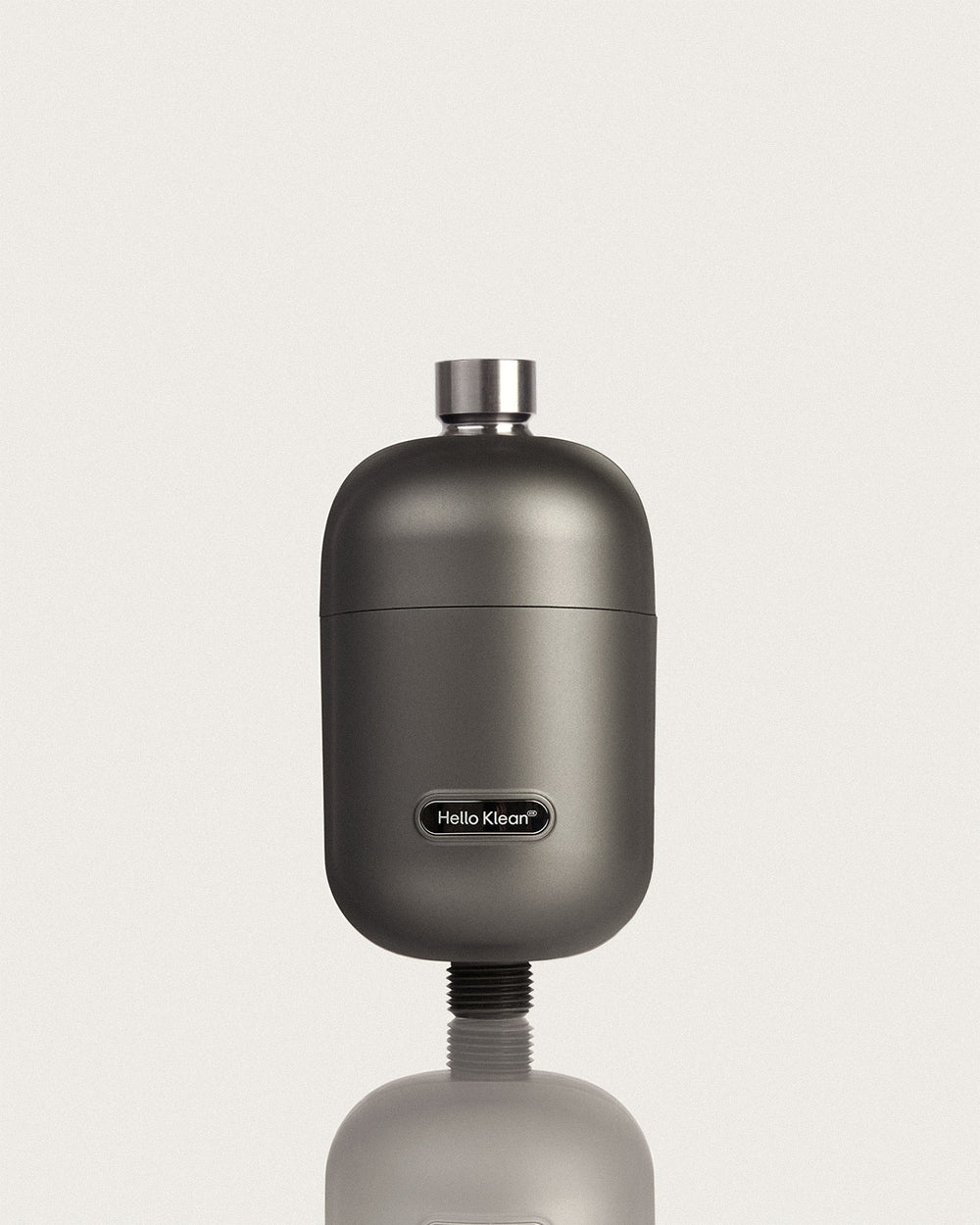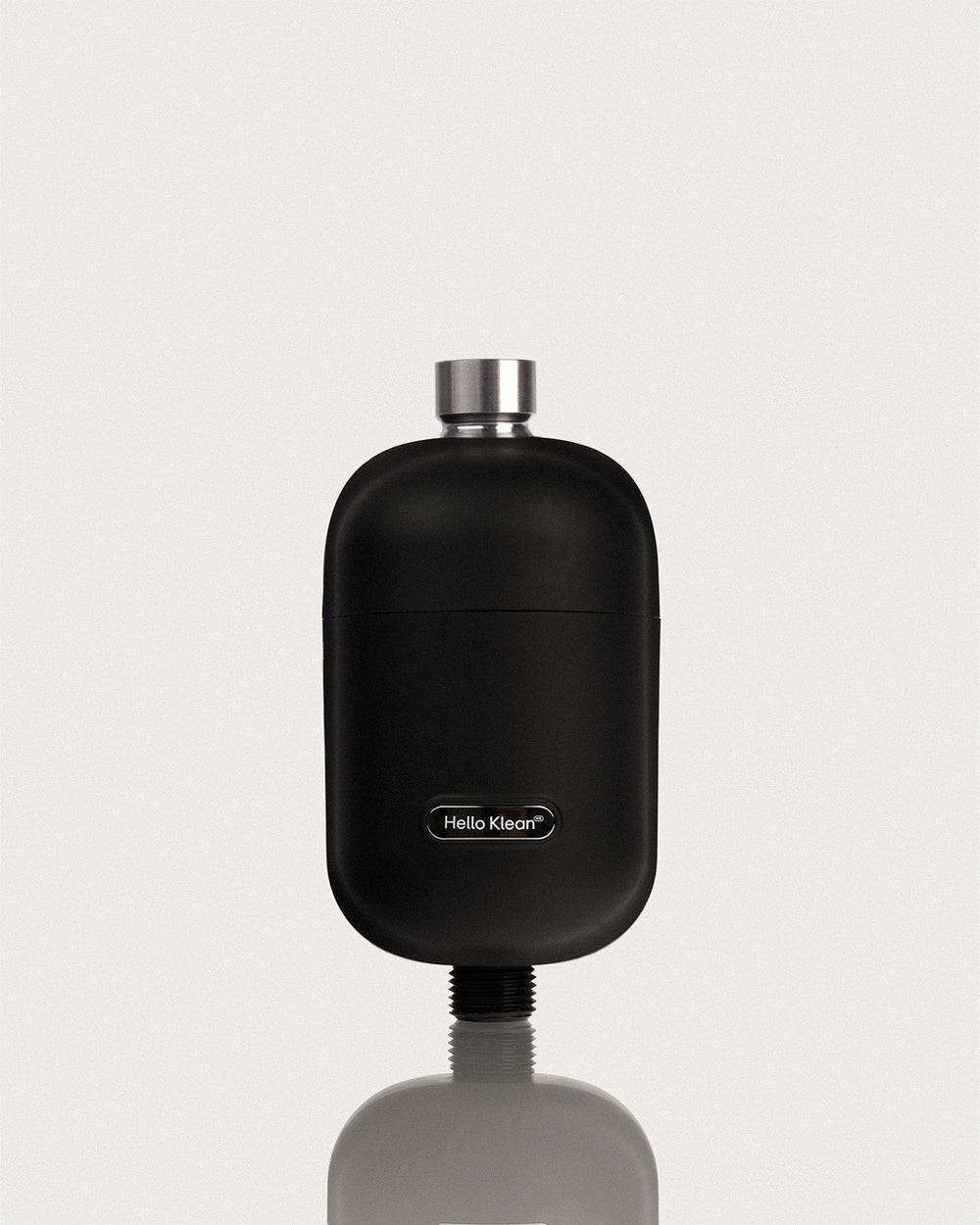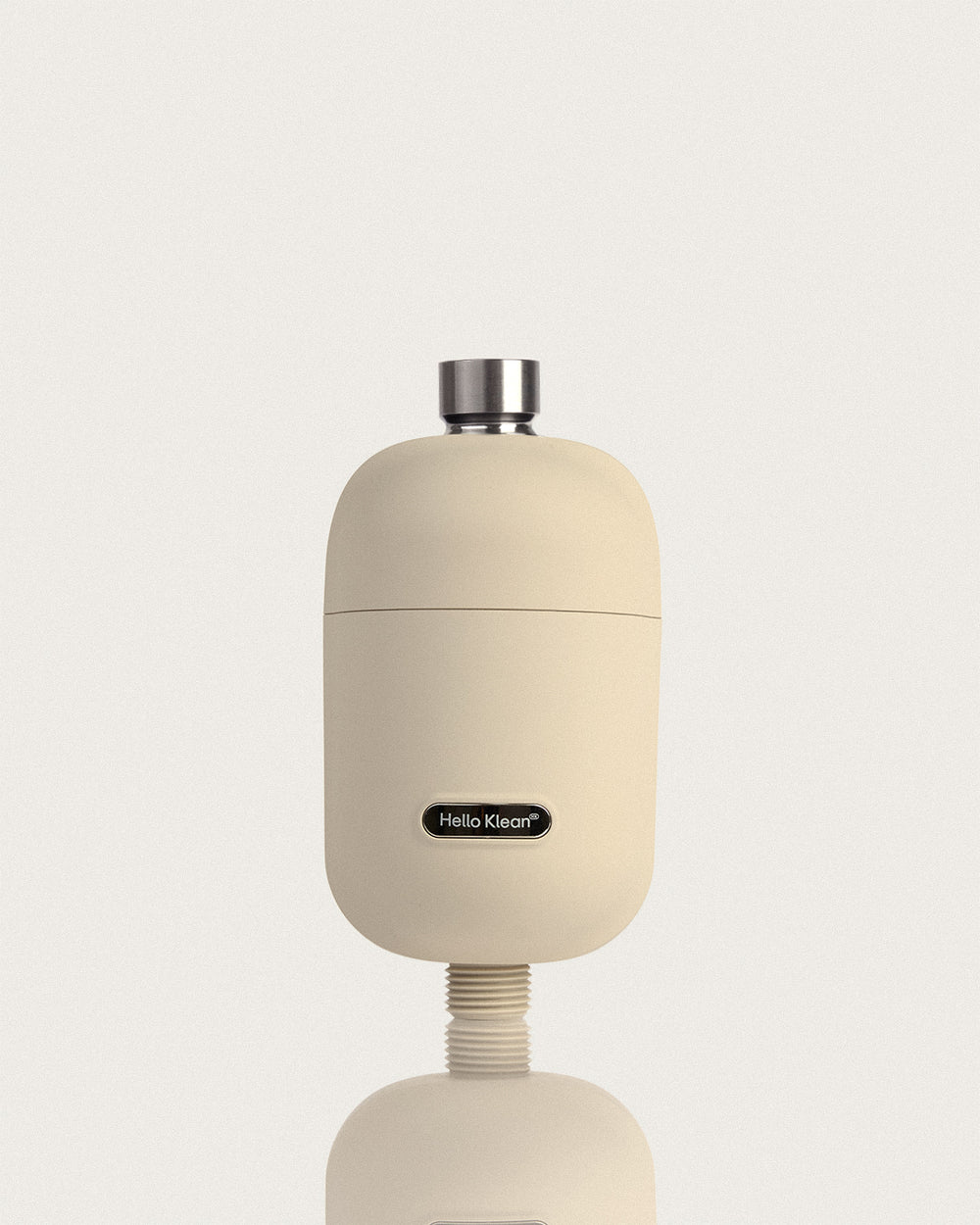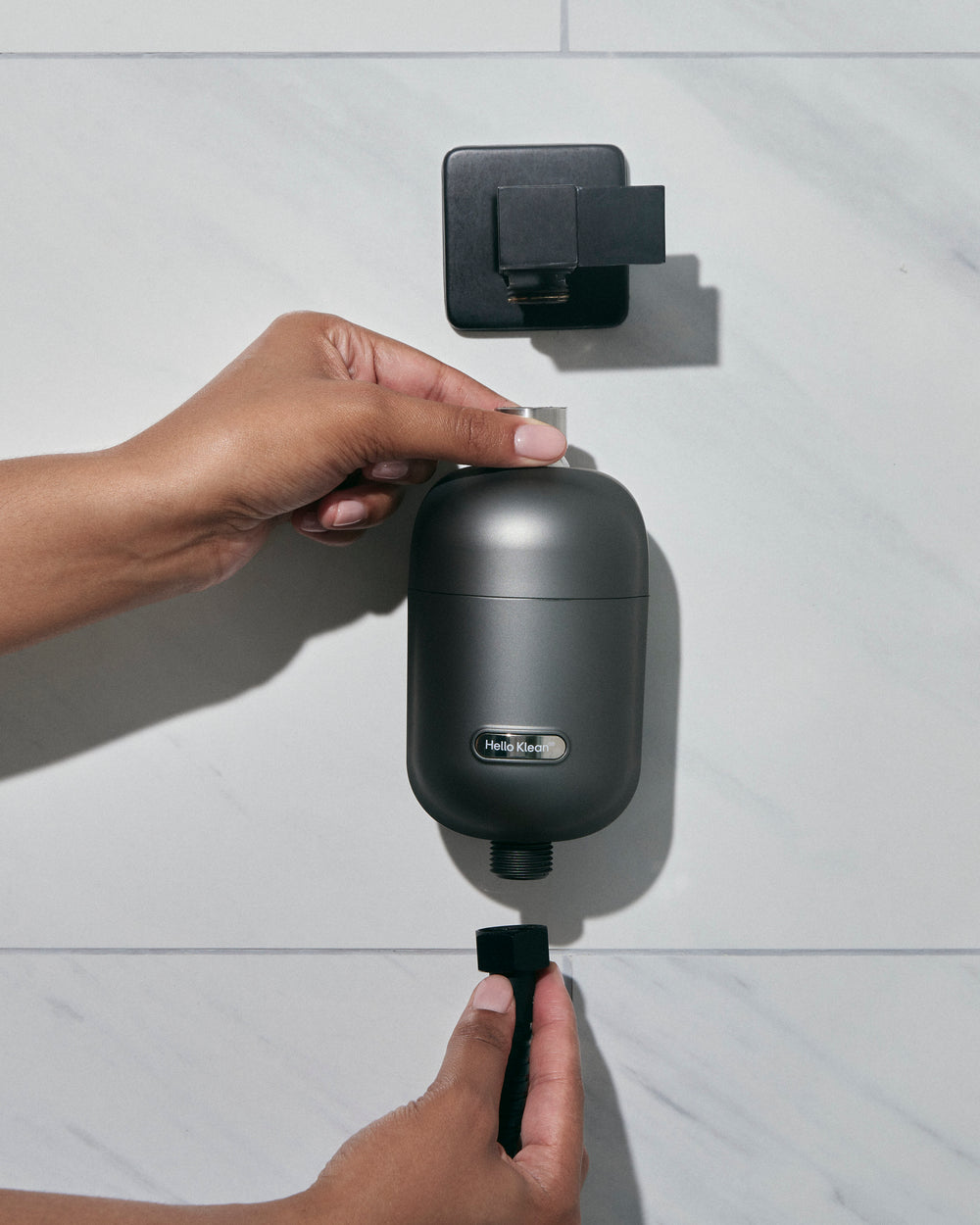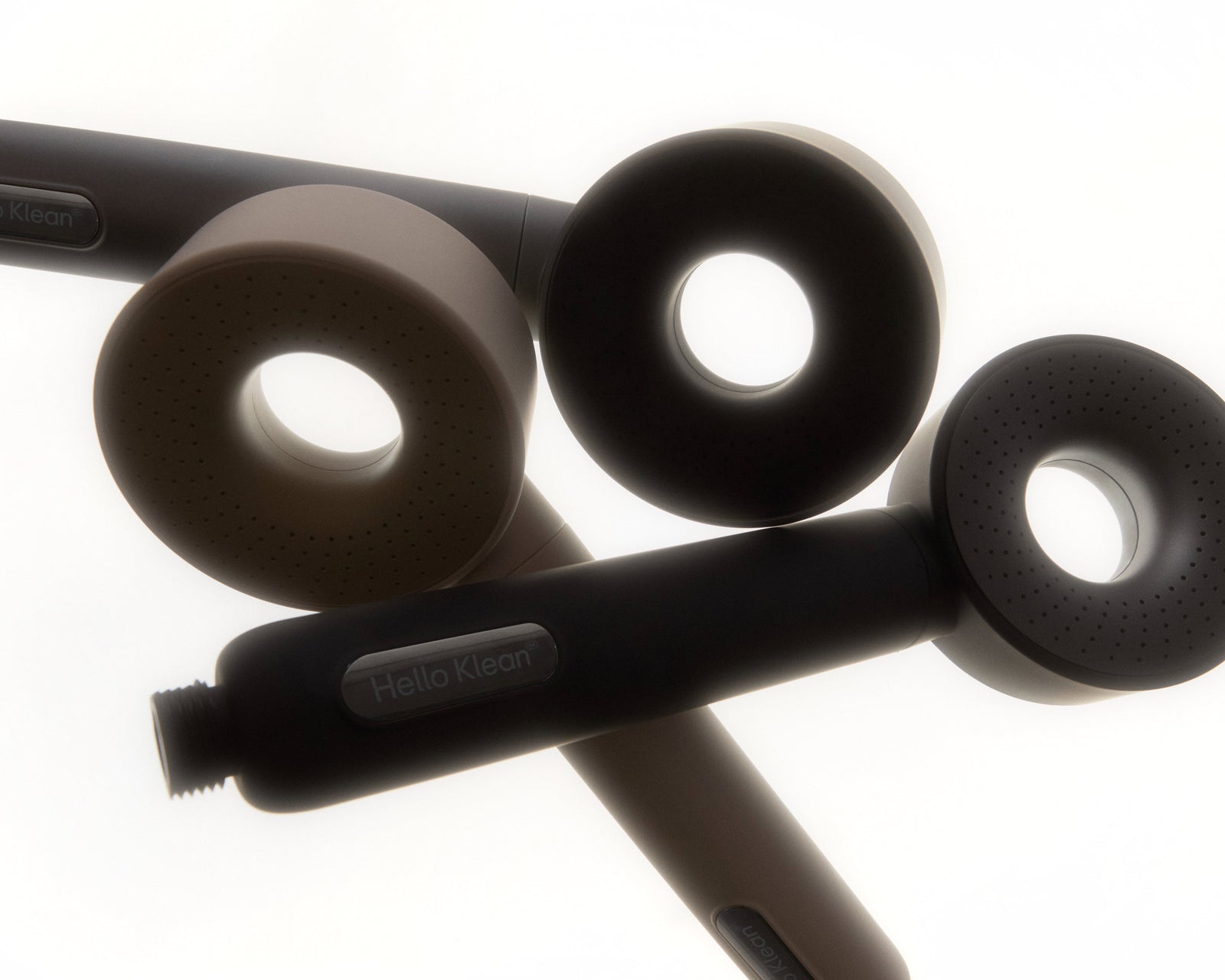“My patients rarely think of water when their skin flares up, but they should.”
Hard water is rich in calcium and magnesium. These minerals leave a residue on your skin that raises its pH, making it more alkaline. Over time, this can lead to dryness, tightness, irritation, and increase the risk of eczema.
Dr. Sonia Interview on Hard Water Impact (2025)
“Hard water changes how your products work.”
Minerals like calcium and magnesium react with cleansers to create soap scum, leaving a filmy residue on skin, scalp, and surfaces. This buildup blocks moisture and makes products less effective over time.
“Chlorine accelerates moisture loss, leaving skin feeling tight.”
For sensitive or eczema-prone skin, this irritation compounds over time, making flare-ups more frequent and recovery slower.
“Heavy metals in water are invisible but impactful.”
Trace metals like copper and iron, often found in older pipes, can deposit on skin and scalp. These invisible particles contribute to oxidative stress and interfere with how your skincare and hair care perform. This build-up can explain why some skin feels persistently dry, congested, or irritated even with a consistent routine.
Dr. Sonia Interview on Hard Water Impact (2025)





